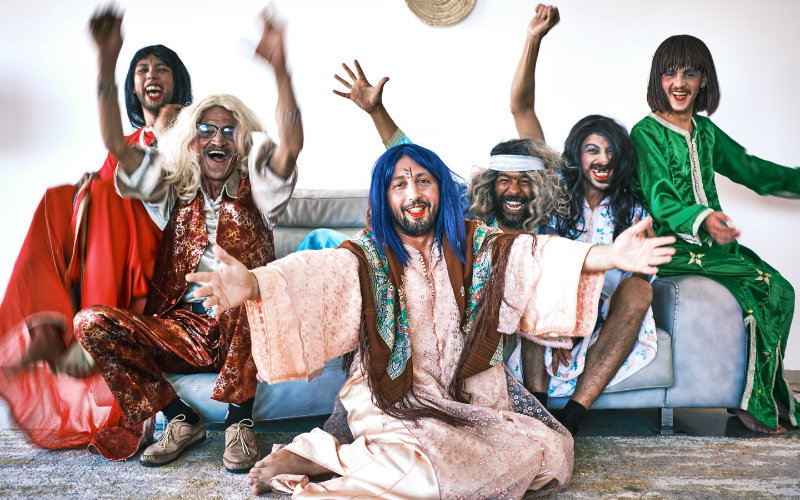Moroccan Cabaret Troupe Challenges Gender Norms with Chikhate-Inspired Performances

Breaking gender stereotypes by drawing inspiration from an iconic figure of Morocco, this is the bold bet of a Casablanca cabaret troupe.
These artists, who perform as chikhates - these independent and free Moroccan popular singers from the 19th and 20th centuries - took the stage of a festival in Tanger last month. Made up and dressed as women, they offered the audience a colorful show, provoking both enthusiasm and incomprehension, reports France Inter.
While the majority of the spectators welcomed the performance with cheers and applause, some more conservative ones expressed their disapproval. "It’s a very difficult subject in Morocco," explains Ayoub, a spectator. "Many associate this kind of show with homosexuality, which remains a taboo in our society." Noura, on the other hand, testifies to an evolution in her gaze: "At first I was shocked, but in the end I find it nice, different."
This troupe, which had been juggling for eight years between running a theater school and concerts in a Casablanca bar, has seen growing success, even beyond the borders of Morocco. It is now based in an apartment in the Mers Sultan neighborhood, known to be the heart of the alternative cultural scene in Casablanca. "We transform this little living room into a small salon theater," explains a member of the troupe. "We are actors, musicians, dancers, singers. We are a bit like the Théâtre du Soleil method."
Ghassan El Hakim, the director, describes his cabaret as "matrimonial". He looks back on the Tanger experience: "It was one of the best concerts I’ve ever done in my career as chikhates! There was a risk, but we chose not to reinforce the security. We were there, as chikhates, and that was enough." Faced with attacks on the internet and in the local press, he prefers to invoke Moroccan history and traditions: "The grandparents of those who were present have all seen the Khomsi dance like a woman. It’s an ancient tradition that still exists in some isolated mountain villages."
The erudite and history-passionate troupe is committed to researching the lyrics of ancient songs written in Moroccan Arabic dialect. It also likes to recall the figure of Bouchaib El Bidaoui, a Moroccan transgender artist from the 1950s, who, like them, contributed to shaking up the norms.
Related Articles
-

Tangier: Morocco’s Hidden Gem Captivates Artists and Travelers Alike
14 September 2025
-

French Firm Sues Mawazine Festival Organizer Over Unpaid Debts, Threatens Major Cultural Event
13 September 2025
-

Dubai Princess Mahra Al Maktoum to Wed Rapper French Montana in Billion-Dollar Union
12 September 2025
-

From Moroccan Hospital to Comedy Stage: Booder’s Journey of Healing Through Humor
10 September 2025
-

French ’Love is Blind’ Sizzles: Morocco Hosts Romantic Reality Show with Teddy Riner
9 September 2025